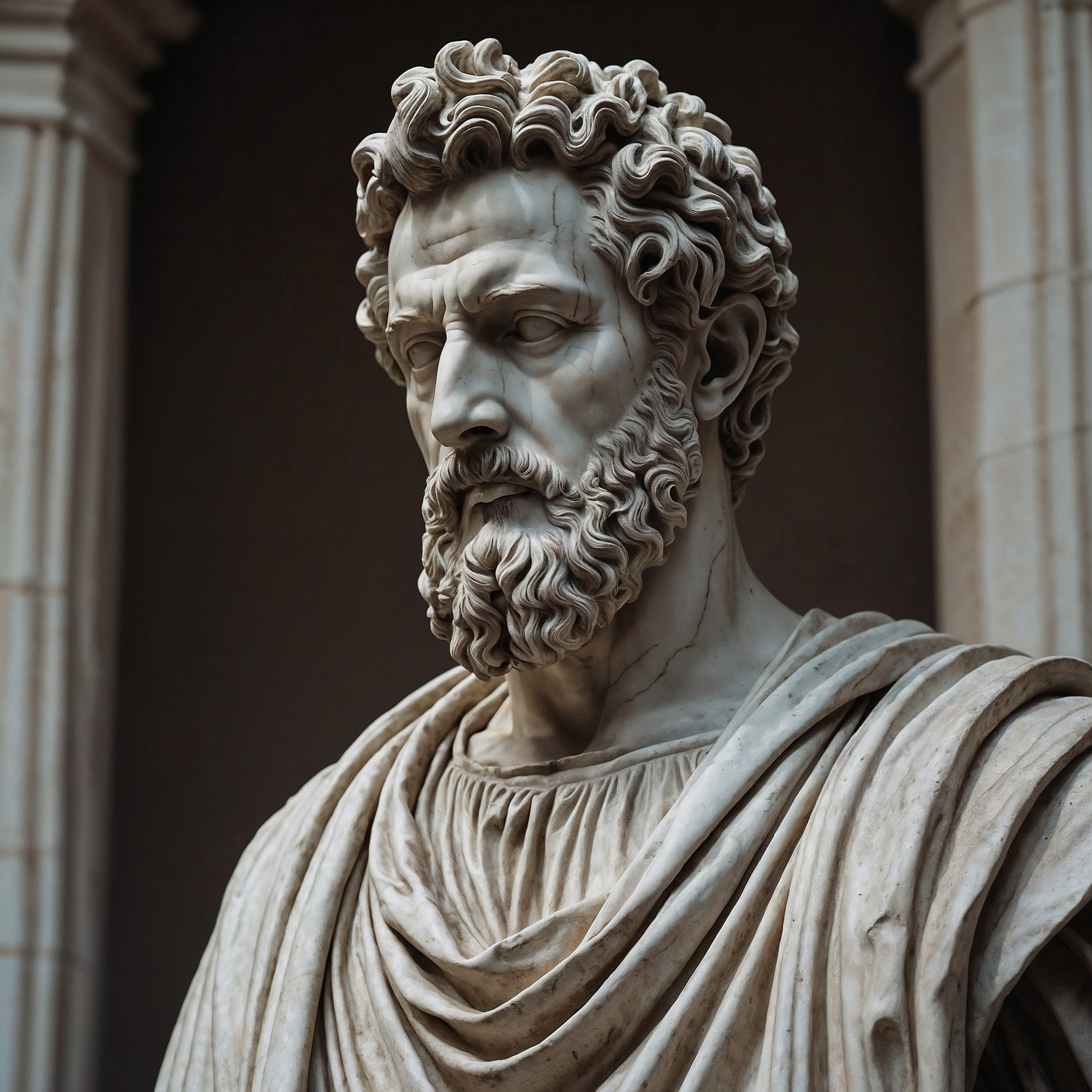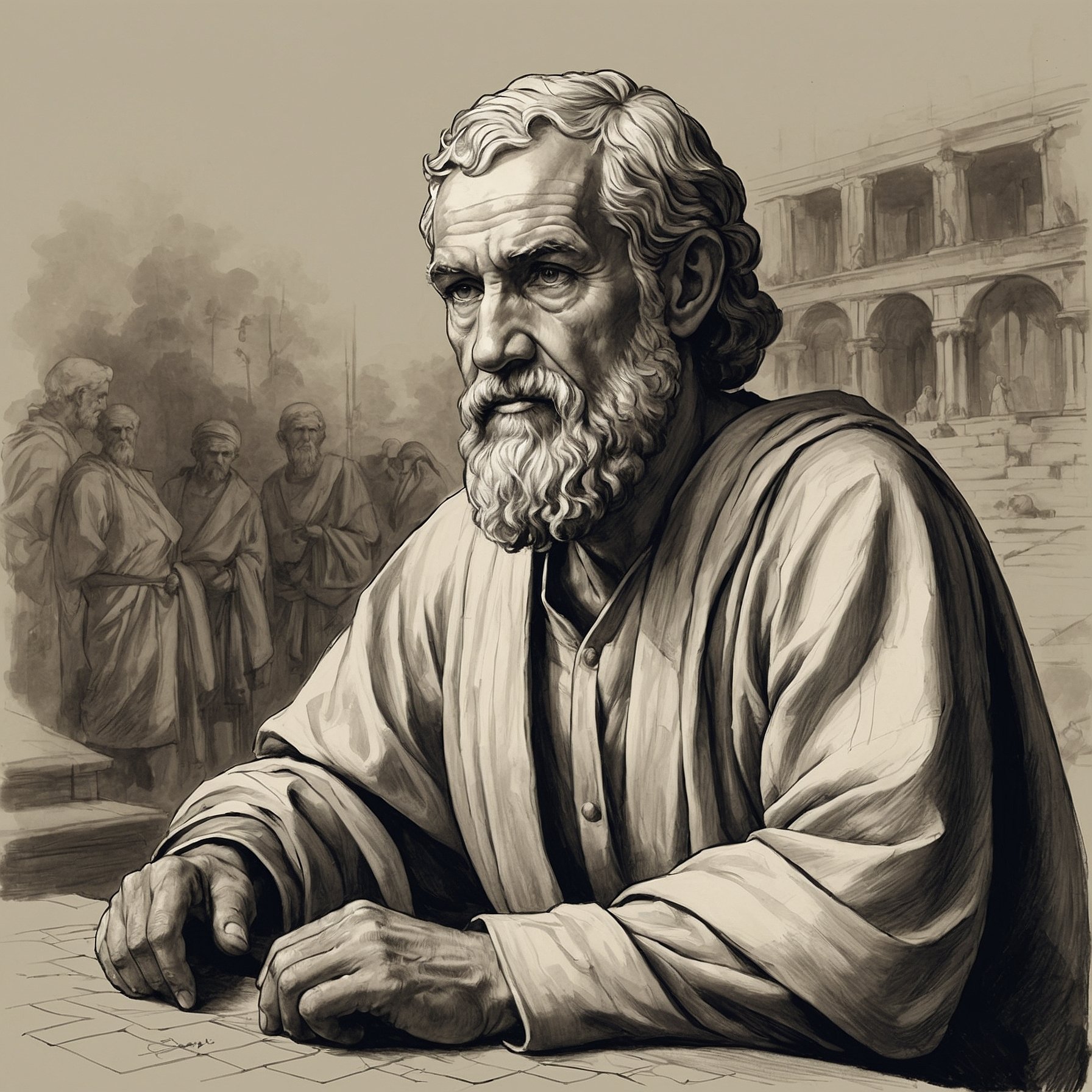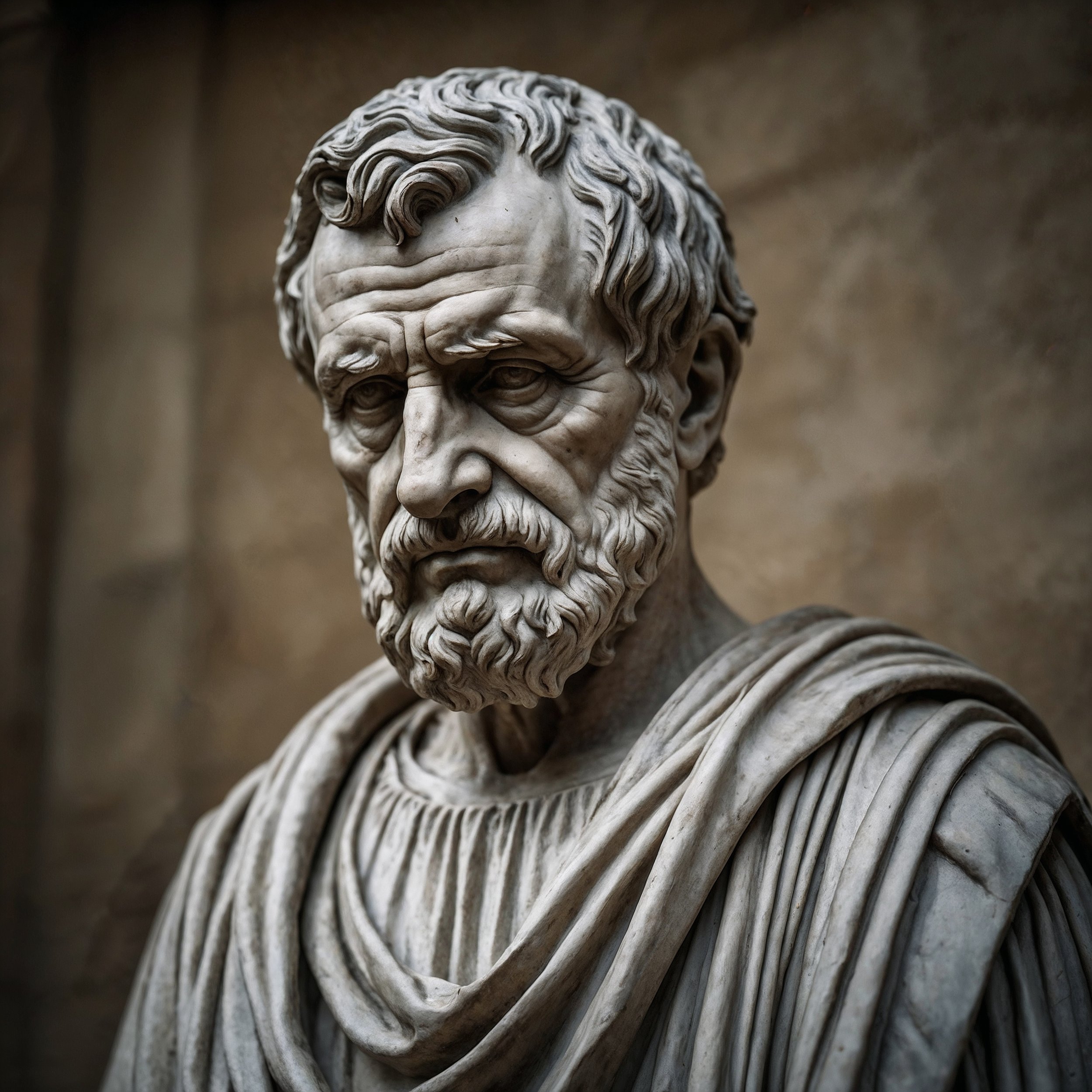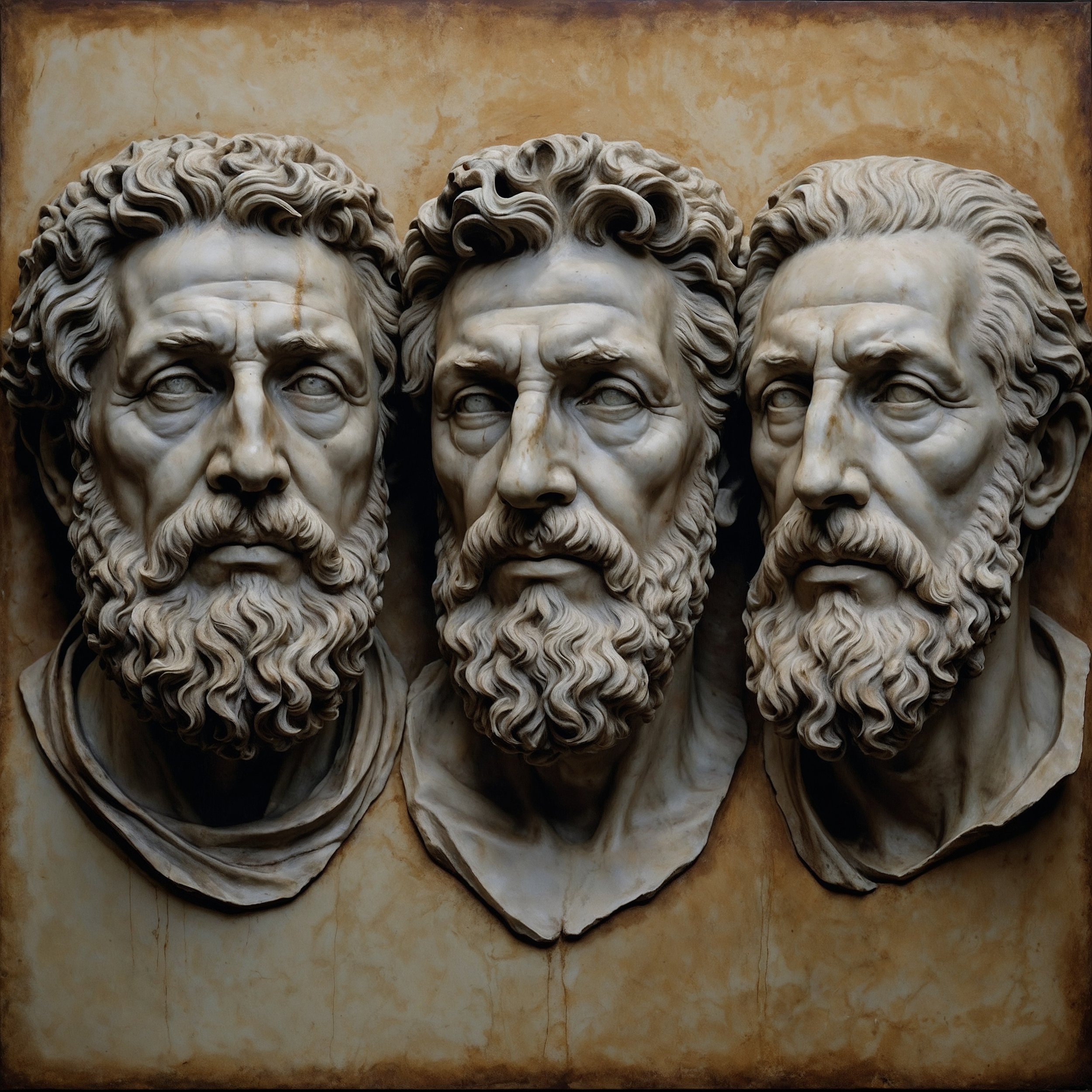Famous Stoic Figures: Marcus Aurelius, Epictetus, and Seneca
A Major Contribution to Stoicism
Throughout history, certain individuals have shaped the course of philosophy, guiding their societies and future generations toward wisdom, resilience, and self-mastery. In the realm of Stoicism, three figures stand tall: Marcus Aurelius, Epictetus, and Seneca. Each of them brought unique insights into this timeless philosophy, leaving us lessons that resonate even in our modern world. But what exactly did they contribute, and how can we apply their wisdom today?
In this post, we’ll explore the key contributions of these famous Stoics, shedding light on their teachings and how they shaped Stoicism as we know it.

Marcus Aurelius – The Philosopher King
Marcus Aurelius, a Roman emperor, is often regarded as the embodiment of a Stoic ruler. His reign, marked by challenges, wars, and personal trials, became a living testament to Stoic principles. Marcus documented his reflections in his personal journal, which we know today as Meditations.
Key Contributions
Meditations: Written as a personal guide, Meditations offers profound insights into leadership, duty, and the human condition. It serves as a blueprint for leading with virtue and staying resilient through adversity.
Practical Stoicism: Unlike many philosophers, Marcus’s Stoicism wasn’t just theoretical. His leadership during crises, such as wars on the empire's borders and a devastating plague, demonstrated Stoicism in action.
Virtue and Responsibility: As emperor, Marcus embodied the Stoic commitment to virtue and responsibility, constantly reminding himself to act for the greater good rather than for personal gain.

Epictetus – The Slave Philosopher
Born a slave in ancient Rome, Epictetus rose from the depths of society to become one of Stoicism’s most influential voices. Despite early hardships, he found freedom in philosophy, later becoming a respected teacher.
Key Contributions
The Enchiridion: Epictetus’ handbook, The Enchiridion, is a concise guide to Stoic thought, focusing on control. It emphasizes distinguishing between what is within our power (our actions, beliefs) and what lies outside it (external events, others’ opinions).
Focus on Control: Epictetus taught that suffering stems from trying to control what we cannot. This core Stoic principle - focusing on what we can control - remains an effective method for reducing anxiety and frustration.
Influence on Later Thinkers: Epictetus’ teachings were highly influential, inspiring many, including later philosophers and even modern psychology, especially cognitive-behavioral therapy (CBT).

Seneca – The Stoic Sage and Statesman
Seneca, a Roman statesman, philosopher, and playwright, was known for his eloquent writings on Stoicism. As an advisor to Emperor Nero, Seneca balanced philosophical ideals with the political intrigues of imperial Rome.
Key Contributions
Letters to Lucilius: Seneca’s letters are a cornerstone of Stoic literature. Written in an accessible, personal style, they offer practical advice on living virtuously, managing life’s complexities, and finding inner peace.
Stoic Ethics in Daily Life: Seneca focused on applying Stoic principles to everyday situations—whether dealing with wealth, anger, or personal hardship. His writings cover everything from the value of time to the importance of friendship, always rooted in the Stoic virtues of wisdom, courage, justice, and temperance.
Balancing Philosophy with Power: Despite his involvement in political life, Seneca remained committed to Stoic ethics, showing how one can navigate power and wealth while staying grounded in philosophy.
The Legacy of Marcus, Epictetus, and Seneca

Each of these Stoic figures brought something unique to Stoicism:
Marcus Aurelius demonstrated the importance of virtue and duty in leadership.
Epictetus provided clarity on control and the power of choice in shaping our inner lives.
Seneca showed how Stoic wisdom could be applied to everyday life and the complexities of human existence.
Their combined legacy continues to inspire countless individuals, offering timeless guidance for navigating personal and collective challenges. As we explore further, this Stoic wisdom - when harmonized with Taoist principles of balance and flow - forms the foundation of Staoicism, a philosophy as relevant today as ever, whether we’re facing professional stress, personal loss, or deeper existential questions.
Application in Your Life
How will you apply the teachings of Marcus Aurelius, Epictetus, or Seneca in your life? Perhaps Marcus’s call for resilience, Epictetus’s emphasis on control, or Seneca’s guidance on daily ethics resonates with you. But what if we could take these Stoic lessons further by integrating Taoist principles of harmony and flow?
As we continue our journey into Staoicism, we’ll explore how combining Stoic resilience with Taoist acceptance can create a balanced, adaptable approach to life. Join us in the comments below to share your reflections, and don’t forget to sign up for our newsletter to dive deeper into this unique philosophy that harmonizes the strength of Stoicism with the gentle flow of Taoism for a truly mindful way of living.
🌊 The Ripple Zone
🔗 Navigate the Flow: Visit the Staoic Compass to find all insights in one place.
🎥 Watch the related video : Stoicism: Embrace the Virtues! [ … ]
📩 Get Your Free Staoic Scroll – Begin Your Path to Clarity and Flow.
💬 Share your thoughts below: How does this resonate with your journey?
